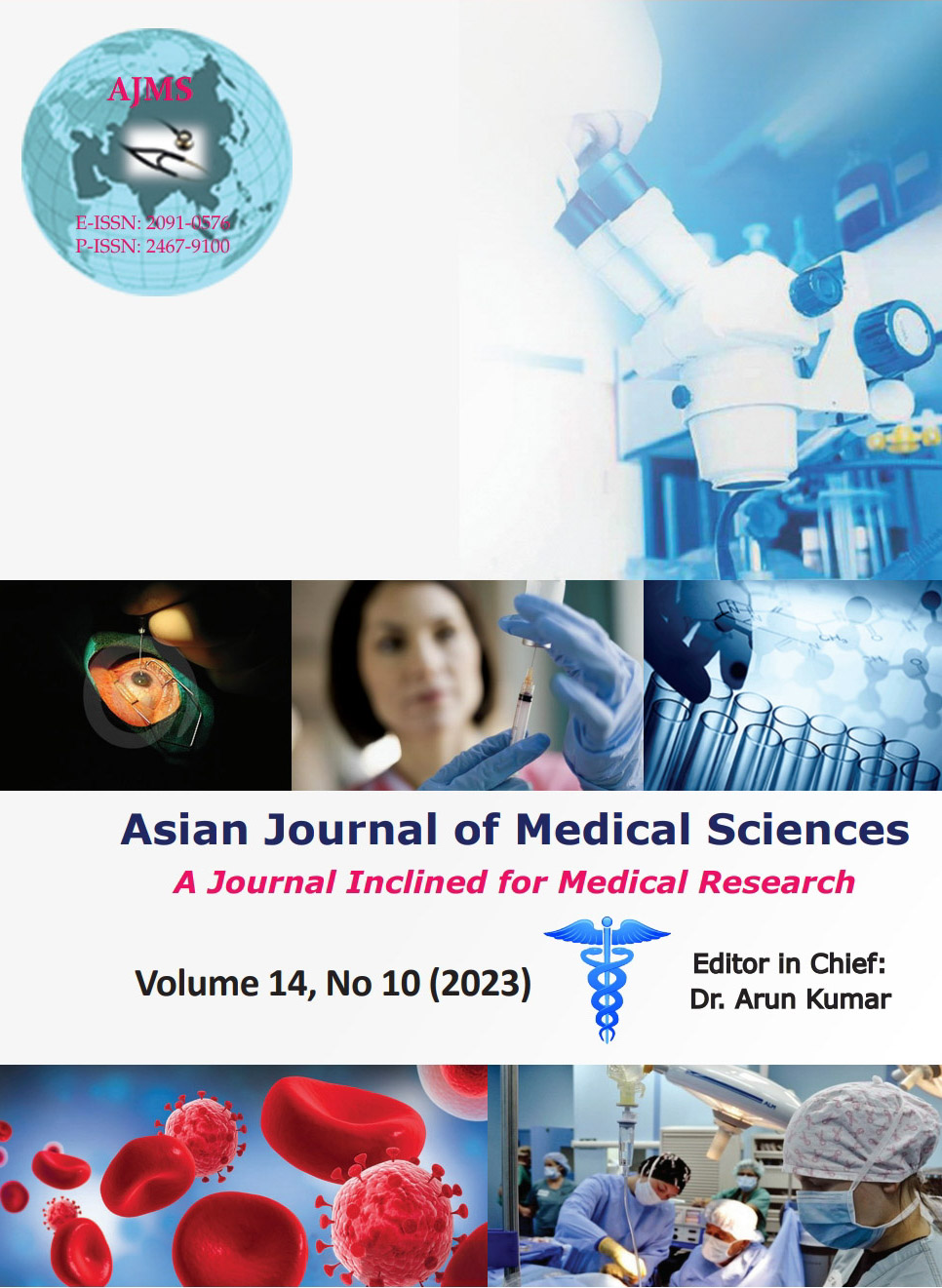A study of cognitive impairment and its neuroimaging correlates in patients with alcohol dependence a cross-sectional study
Keywords:
Alcohol dependence; Cognitive impairment; Alcohol use disorder identification test; Severity of alcohol dependence questionnaire; PGI memory scaleAbstract
Background: Alcohol abuse is one of the most common psychiatric disorders observed worldwide.
Aims and Objectives: The study aimed to assess cognitive impairment in alcohol-dependent patients, its correlation with neuroimaging, and compare the findings with non-alcoholics.
Materials and Methods: We have included 30 alcoholics and 30 control participants. Tools such as semi-structured pro forma, alcohol use disorder identification test score, the severity of alcohol dependence questionnaire (SADQ), and PGI memory scale (PGIMS) were used for the assessment. The measurements of the third and fourth ventricle width, interhemispheric fissure width, cerebellar transverse width, the inner diameter of the skull, anterior horn distance, and midbrain diameter were taken from a magnetic resonance imaging (MRI) brain.
Results: There was a significant difference in remote memory, mental balance, attention and concentration, delayed recall, immediate recall, visual retention, third and fourth ventricle width, interhemispheric fissure width, and cerebral transverse length between alcoholics and non-alcoholics. Further, a correlation analysis of the PGIMS total score with MRI measurements and alcohol intake showed a significant negative correlation of PGIMS total score with third ventricle width, duration of alcohol consumption, period of alcohol dependence, the quantity of alcohol per day, and SADQ score. However, a significantly positive correlation was observed between PGIMS total score and cerebellar transverse length.
Conclusion: Alcohol-dependent patients had poor cognitive functions compared to non-alcoholics. They also had significant cerebral and cerebellar atrophy and were characterized by dilation of the third and fourth ventricles. The increase in the duration of alcohol consumption, period of alcohol dependence, and quantity of alcohol intake caused cognitive impairment independently.
Downloads
Downloads
Published
How to Cite
Issue
Section
License
Copyright (c) 2023 Asian Journal of Medical Sciences

This work is licensed under a Creative Commons Attribution-NonCommercial 4.0 International License.
Authors who publish with this journal agree to the following terms:
- The journal holds copyright and publishes the work under a Creative Commons CC-BY-NC license that permits use, distribution and reprduction in any medium, provided the original work is properly cited and is not used for commercial purposes. The journal should be recognised as the original publisher of this work.
- Authors are able to enter into separate, additional contractual arrangements for the non-exclusive distribution of the journal's published version of the work (e.g., post it to an institutional repository or publish it in a book), with an acknowledgement of its initial publication in this journal.
- Authors are permitted and encouraged to post their work online (e.g., in institutional repositories or on their website) prior to and during the submission process, as it can lead to productive exchanges, as well as earlier and greater citation of published work (See The Effect of Open Access).




